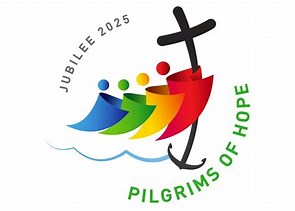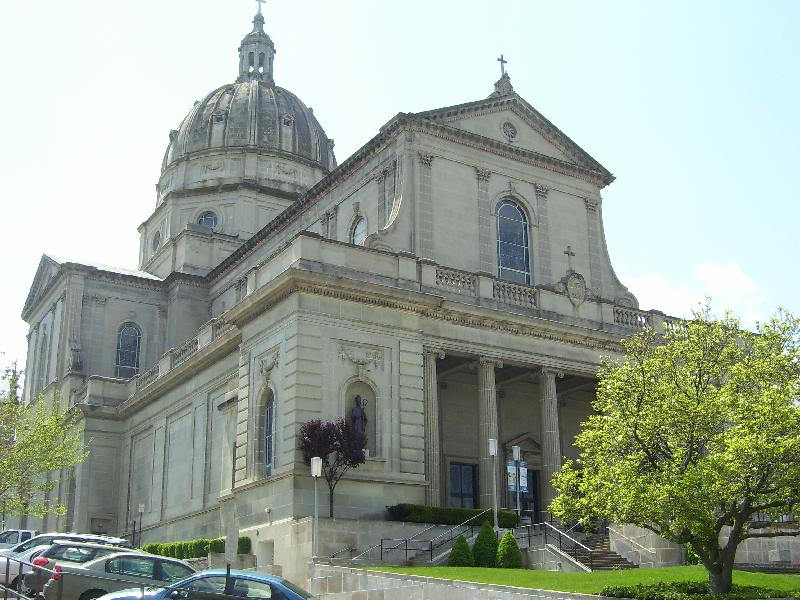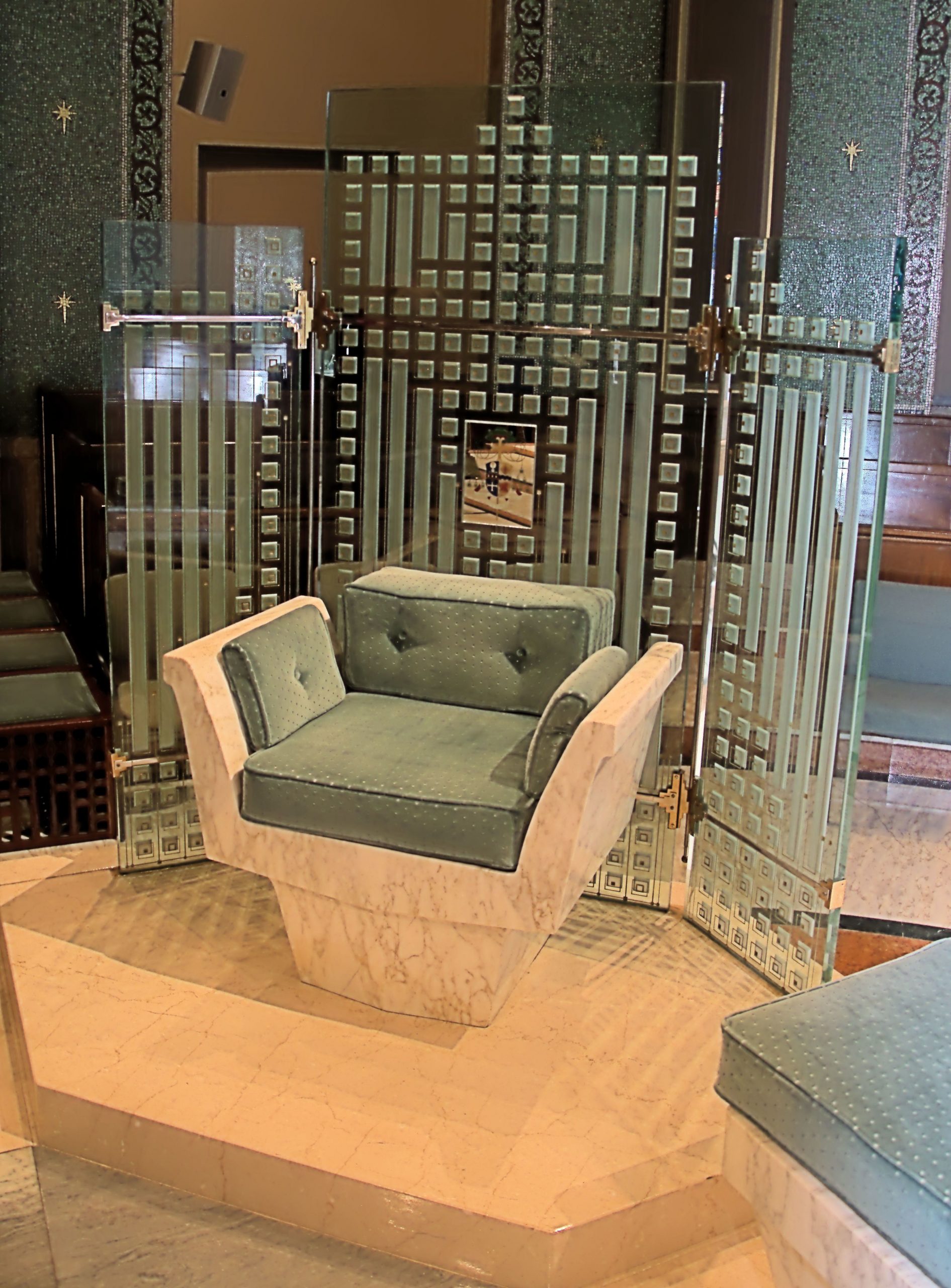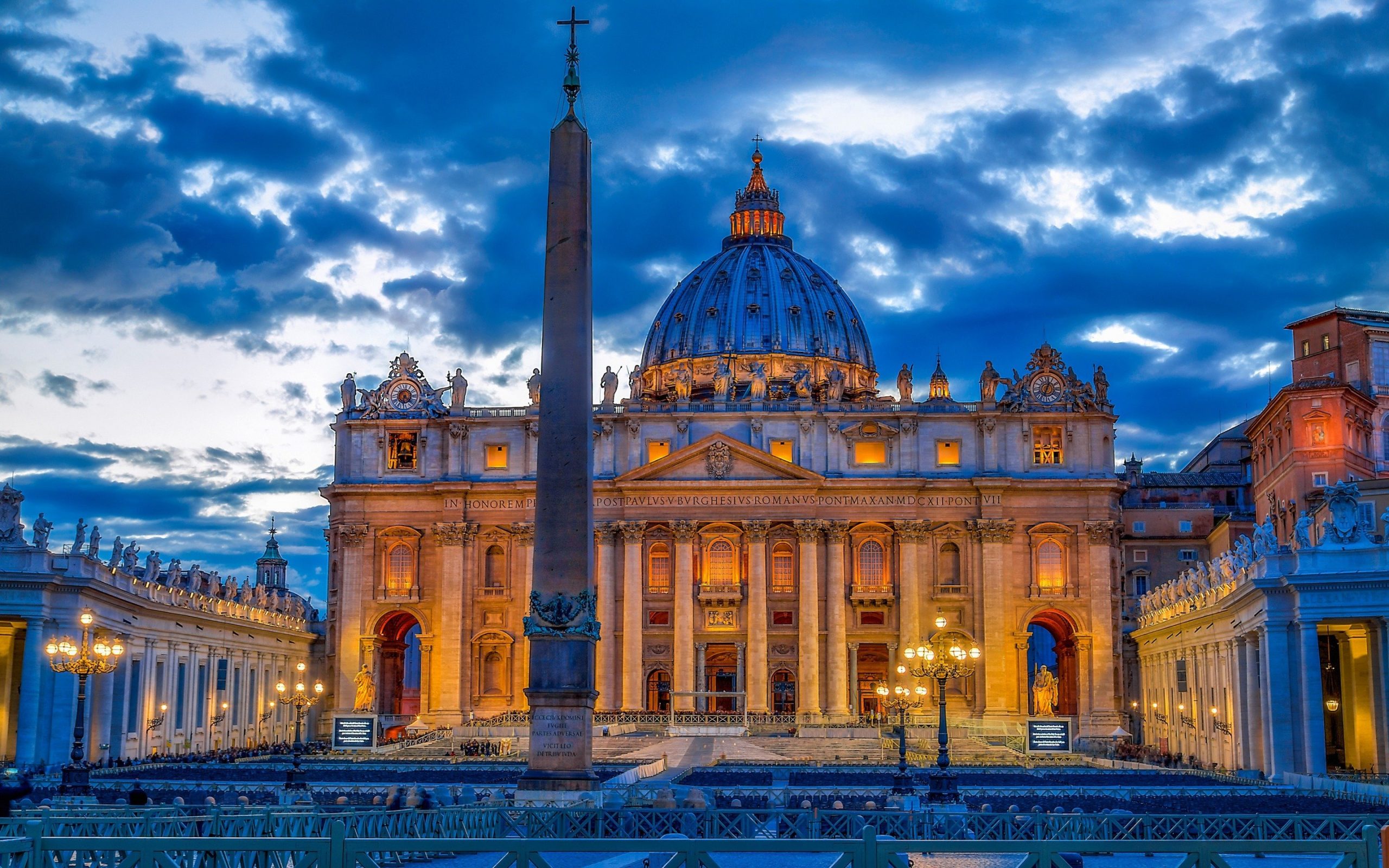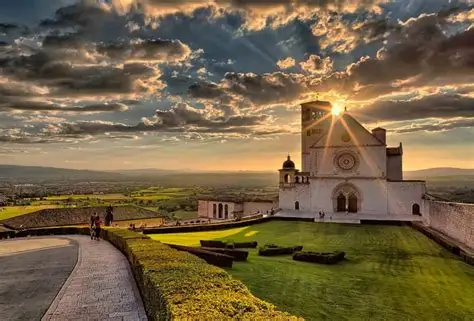CATHEDRAL OF THE BLESSED SACRAMENT
The Cathedral of the Blessed Sacrament Parish in Altoona, PA is a welcoming and compassionate community of believers striving to grow as God’s people.
As disciples of Jesus Christ, we offer lifelong faith formation for children, youth, and adults; and we live out Christ’s invitation to serve our sisters and brothers.
We gather to worship in prayer and song and invite all to joyfully participate in word and sacrament, especially the Eucharist.
SERVING THE PEOPLE OF GOD IN THE CITY OF ALTOONA, PA SINCE 1851.
SUPPORTING THE MINISTRIES OF CATHEDRAL PARISH
By clicking on the Get Involved link, you will find valuable information on how to make a financial donation to the Cathedral. The weekly offertory, the annual Catholic Ministries Drive, Bequests, and contributions to our Endowments are ways by which the blessings God has given to you become a blessing to the parish.
PILGRIMAGE TO ROME AND THE SHRINES OF ITALY
You are invited to join Monsignor Stan Carson on a pilgrimage to Rome and the shrines of Italy from October 12-22 in 2026. Brochures are available at the entrances to the cathedral. Information is also available at https://gateway.gocollette.com/link/1377752
DAILY MASSES
Monday-Saturday-Noon
WEEKEND MASSES
Vigil, Saturday at 5:00 P.M.
Sunday Masses at 8:00 A.M., 10:00 A.M. and 5:00 P.M.
SACRAMENT OF RECONCILIATION
Wednesday at 7:00 P.M.
Saturday: at 12:30 P.M.
By appointment: by calling or texting 814-937-8240
ADVENT PENANCE SERVICE: Wednesday, December 17, at 6:00 P.M.
First Sunday of Advent
November 30, 2025
GOSPEL MEDITATION
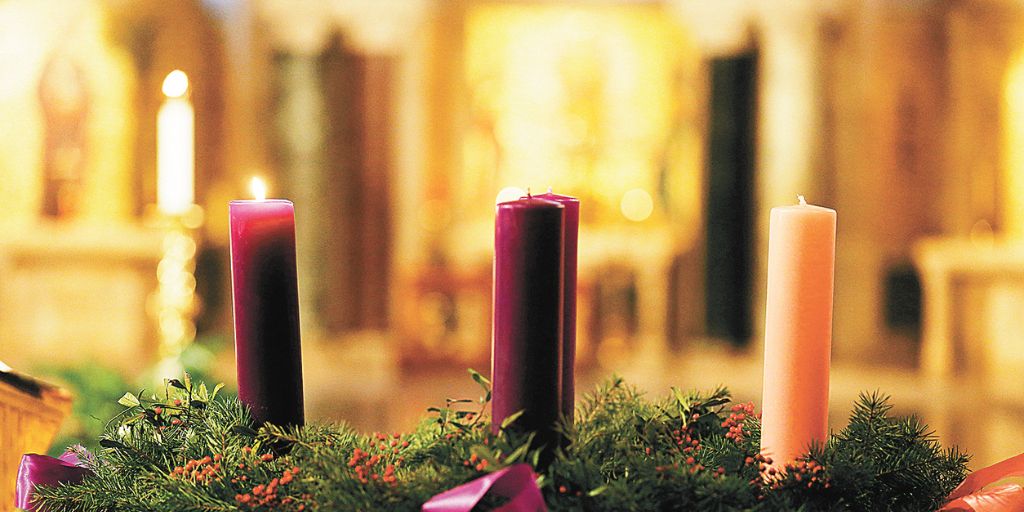
A few years ago, my house was broken into on Super Bowl Sunday. Turns out, it’s a great day for burglars. If the TV isn’t on, people are probably watching the game somewhere else, so … easy pickings’. I’ll never forget walking into my bedroom and realizing someone had been there. My stuff was thrown all over the floor. The closet was torn apart. It was disorienting and disturbing — someone had invaded the space I thought was secure. After that, I bought an alarm system. And every Super Bowl Sunday since, I’m extra careful to lock the doors and keep the lights on. That experience made me more alert. Not scared. Just attentive.
That’s much like the spiritual place Jesus wants us to be on this first Sunday of Advent. He doesn’t start the season with soft candlelight and cozy manger scenes. He starts with two brutal images: a flood and a thief. In other words, chaos and violation.
Why? Because life will flood us. Chaos will come. And in the midst of it, Christ will come like a thief — not to steal from us, but to steal us back. He is the intruder we should want. The one who breaks in, not to ransack, but to rescue.
Christ presents himself as the thief but also the new Noah. He builds the ark of the Church to carry us through the flood. And he invites us to join him. How? By participating fully in our parishes. By making our homes places of prayer. By guarding our hearts with truth. By refusing to let spiritual complacency leave us exposed. By repentance.
This Advent, don’t just stay vaguely “awake.” Prepare. Build. Watch. The flood will come. But so will he.
EVERYDAY STEWARDSHIP
Today we begin the beautiful season of Advent. It is a season meant for preparation but for what exactly are we preparing? Two things actually the celebration of our Savior’s birth and the anticipation of His second coming.
These are weighty tasks that have eternal consequences. So, let us Christian stewards make the words of the Prophet Isaiah our motto for the season: “Come, let us climb the Lord’ mountain to the house of the God of Jacob, that He may instruct us in His paths.”
How can we Christian stewards prepare ourselves and our families for a holy celebration of Jesus’ birth on December 25 and for his certain second coming at a date we do not know? We can push back against the world’s pressure to have the ‘perfect Christmas.’ Scale back on the material kind of gift-giving, the complicated menus, and the unessential trappings of the season so that we have more time for spiritual preparation: confession, weekday Mass, adoration, family prayer time, lighting the Advent wreath, and performing acts of kindness.
It may feel like a mountain to climb, but in the end, we will be prepared to celebrate a truly meaningful Christmas, we will have become more like our Savior, and we will be ready for Him to come again. Let’s go climb the Lord’s mountain.
2025 Catholic Stewardship Consultants
PRACTICING CATHOLIC – RECOGNIZE GOD IN YOUR ORDINARY MOMENTS
Mini reflection: Love and hate. Hope and fear. Death and life. What lasts forever, and what is even now passing away before our eyes. To be human is to know that these feelings, these realities, can and often do occur at the same time. To be Christian is to know that it means something.
Two Things Can Be True At Once
As my husband and I drove our firstborn child home from the hospital, I sat alongside my daughter in the backseat. Terrified, exhausted, exhilarated, confused, hopeful — I was all of these things at the same time. I gazed at her, this magnificent little creature whose face was both familiar and strange to me, thinking: She is exquisite. She is the future. She is life.
And then I burst into uncontrollable sobs.
“What’s wrong?” my husband cried, panicked, glancing in the rearview mirror.
“She’s — going — to — die — someday,” I blubbered, choking on my own tears.
“Ohhh, honey.” I’ll never forget the tone of his voice as he clearly debated turning this car around and taking me back to the hospital for an emergency psych evaluation. “I think you might be tired.”
Ten years later, it’s a memory we laugh about. I hadn’t slept more than four hours in four days. Postpartum hormones had lain waste to my senses. Here, on the threshold of new life, all I could think of was death. It’s funny. It’s absurd.
But it also makes a lot of sense.
Love and hate. Hope and fear. Joy and sorrow. Death and life. What lasts forever, and what is even now passing away before our eyes. To be human is to know that these feelings, these realities, can and often do occur at the same time. To be Christian is to know that it means something — even if we cannot understand what. Not yet.
In every moment of his earthly life, Christ shows us that two things can be true at once. A virgin is a mother. An exile is a king. The temple will be destroyed, and it will last forever. The world is ending. The world is beginning. The cross is death. The cross is life.
– Colleen Jurkiewicz Dorman

